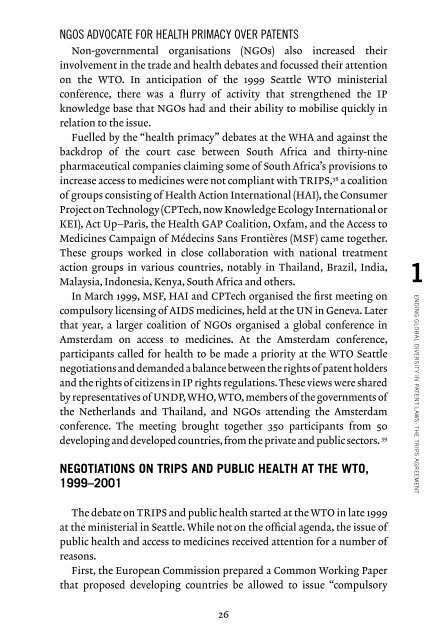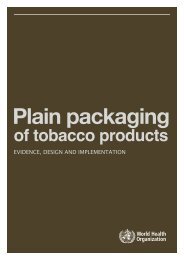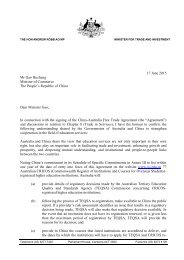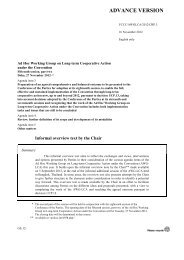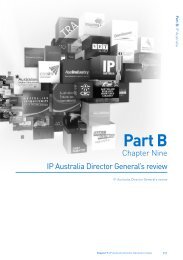PRIVATE PATENTS AND PUBLIC HEALTH
private-patents-and-public-health
private-patents-and-public-health
You also want an ePaper? Increase the reach of your titles
YUMPU automatically turns print PDFs into web optimized ePapers that Google loves.
NGOS ADVOCATE FOR <strong>HEALTH</strong> PRIMACY OVER <strong>PATENTS</strong><br />
Non-governmental organisations (NGOs) also increased their<br />
involvement in the trade and health debates and focussed their attention<br />
on the WTO. In anticipation of the 1999 Seattle WTO ministerial<br />
conference, there was a flurry of activity that strengthened the IP<br />
knowledge base that NGOs had and their ability to mobilise quickly in<br />
relation to the issue.<br />
Fuelled by the “health primacy” debates at the WHA and against the<br />
backdrop of the court case between South Africa and thirty-nine<br />
pharmaceutical companies claiming some of South Africa’s provisions to<br />
increase access to medicines were not compliant with TRIPS, 38 a coalition<br />
of groups consisting of Health Action International (HAI), the Consumer<br />
Project on Technology (CPTech, now Knowledge Ecology International or<br />
KEI), Act Up–Paris, the Health GAP Coalition, Oxfam, and the Access to<br />
Medicines Campaign of Médecins Sans Frontières (MSF) came together.<br />
These groups worked in close collaboration with national treatment<br />
action groups in various countries, notably in Thailand, Brazil, India,<br />
Malaysia, Indonesia, Kenya, South Africa and others.<br />
In March 1999, MSF, HAI and CPTech organised the first meeting on<br />
compulsory licensing of AIDS medicines, held at the UN in Geneva. Later<br />
that year, a larger coalition of NGOs organised a global conference in<br />
Amsterdam on access to medicines. At the Amsterdam conference,<br />
participants called for health to be made a priority at the WTO Seattle<br />
negotiations and demanded a balance between the rights of patent holders<br />
and the rights of citizens in IP rights regulations. These views were shared<br />
by representatives of UNDP, WHO, WTO, members of the governments of<br />
the Netherlands and Thailand, and NGOs attending the Amsterdam<br />
conference. The meeting brought together 350 participants from 50<br />
developing and developed countries, from the private and public sectors. 39<br />
NEGOTIATIONS ON TRIPS <strong>AND</strong> <strong>PUBLIC</strong> <strong>HEALTH</strong> AT THE WTO,<br />
1999–2001<br />
1<br />
ENDING GLOBAL DIVERSITY IN PATENT LAWS: THE TRIPS AGREEMENT<br />
The debate on TRIPS and public health started at the WTO in late 1999<br />
at the ministerial in Seattle. While not on the official agenda, the issue of<br />
public health and access to medicines received attention for a number of<br />
reasons.<br />
First, the European Commission prepared a Common Working Paper<br />
that proposed developing countries be allowed to issue “compulsory<br />
26


